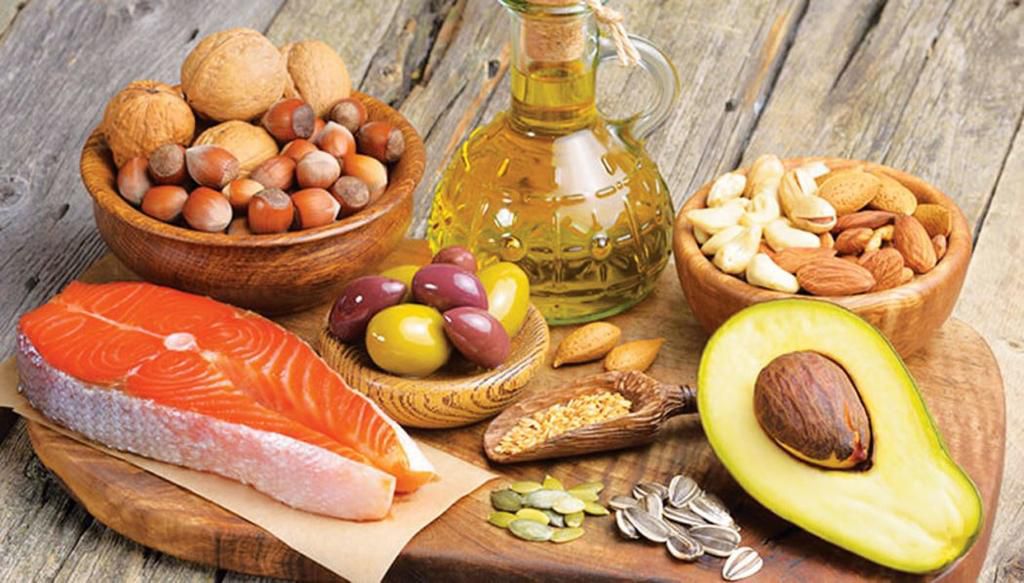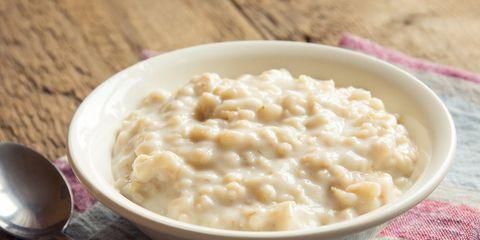How to create a proper balanced diet with Nigerian food
)
Most of Nigerian foods are actually healthy, especially if you know how to combine it.
Here's how to create a proper balanced diet with Nigerian food.
1. Carbohydrate
Digestible carbohydrate in your diet provides you with energy, although in a much soluble and readily available form. Typically, Nigerian food rich in carbohydrates include: rice, yam, wheat, maize, pasta, sweet potatoes, amala, eba/garri, etc.
2. Protein
Protein is a good source of amino acids that make up your muscle tissue, support your immune health, transport molecules in and out of your cells and provide the basis for hormones and enzymes. Typical Nigerian protein sources include: beef, fish, eggs, cow milk, yoghurt, beans, pork, etc.
3. Fats

The fats, or lipids, you eat supply you with a very concentrated source of energy that you can store in your adipose tissue for later use. People like to avoid all types of fat because of weight gain, but the truth is that mostly trans/saturated fats should be avoided because they expose you to heart disease. Fat sources in Nigerian food include: Salmon fish, olive oil, skimmed milk, avocado, peanut butter, sardines, etc.
4. Vitamins
The different vitamins in the different sources of food help in fighting diseases in the body. Most fruits and vegetables are very rich in key vitamins such as Vitamin A, B, C, D, E and K.
5. Minerals
Minerals play different roles for tissues and cells. For example, calcium provides structure to your bones, potassium helps regulate blood pressure, iron transports oxygen through your blood and zinc helps keep your immune system healthy. Mineral sources include: Milk, salt, red meat, fish, potatoes, rice, etc.
6. Fiber

The presence of dietary fibre in your food help proper digestion. They don’t contribute fuel or structure to your cells but affect how quickly food moves through your gut. They also keep cholesterol levels in check. Food rich in fibre include: Oatmeal, roughage of orange, vegetables, brown rice, banana, apples, mango, etc.
7. Water
Water is more essential than any other nutrient because of its high requirement in the body. It helps in hydration and with electrolytes. Drink lots of water or eat fruits like watermelon which have high water content.
Example of balanced Nigerian diet
Breakfast: Bread, pepper stew, meat/chicken and water
Lunch: Jollof spaghetti with vegetables and chicken/meat.
Dinner: Yam pottage with vegetable and meat/turkey
)
)
![The health benefits of ginger and garlic are unbelievable [Food NDTV]](https://image.api.sportal365.com/process/smp-images-production/pulse.ng/01082024/200694f2-3977-47a4-a142-89c80fe6766e?operations=autocrop(236:157))
)
![10 countries where prostitution is legal. [Source - scoop]](https://image.api.sportal365.com/process/smp-images-production/pulse.ng/31072024/5eda0369-74f6-4a3b-82f7-d7dab249c8ac?operations=autocrop(236:157))
![Tribal marks of Nigerian people and what they mean. [guardian]](https://image.api.sportal365.com/process/smp-images-production/pulse.ng/01082024/45e8c254-ebf2-4262-b639-c83e8b56a32e?operations=autocrop(236:157))
)
)
)
)
)
)
)
)
)
)